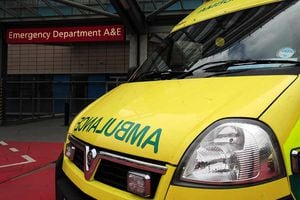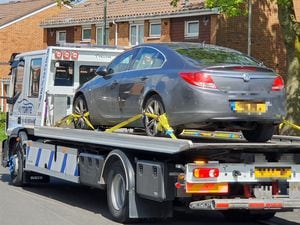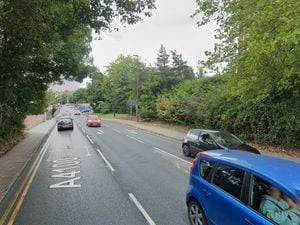Opinion: The sickness behind the A&E crisis
Our local doctor's surgery had long queues of patients waiting to be seen on Monday because only one of the four staff there had turned up for work.

The others were off sick, writes Nigel Hastilow.
Was it, I wondered, purely a coincidence that the three absentees were all mothers and this was the last day of the Christmas holidays?
My cynical attitude has hardened since Monday given that various hospitals up and down the country are declaring 'major incidents' because their accident and emergency departments can't cope with the 'unprecedented' pressure placed on them.
The law of supply and demand applies to the NHS as it does elsewhere. Demand for treatment may have risen over the last couple of weeks – though when did it not increase in the bug-ridden winter? – but what about the supply of staff to deal with it?
It's not just a question of whether the NHS employs enough doctors and nurses; it's whether they're properly managed.
How many staff at the crisis-hit hospitals are off sick?

Health workers may be more likely to fall ill than the rest of us. How could it be otherwise when they spend all day, every day in close proximity to people who have every disease known to man?
It must be the case that doctors, nurses and others who work in surgeries and hospitals are more vulnerable to infection than those of us who do our best to steer well clear of people with coughs and sneezes.
Even so, is it really a coincidence that this winter's A&E crisis comes just weeks before a General Election when the Labour Party is promising to throw more money at the NHS?
To be fair, hospitals have been performing badly for some time. New figures show they failed to see 7.4 per cent of A&E patients within four hours over the last three months of 2014 – 174 people had to wait more than 12 hours.
But when did a four-hour wait become the norm anyway?
It's partly just appalling inefficiency. When my father was rushed to hospital a couple of Christmases ago – and kept waiting for hours before a doctor deigned to see him – the £545 million 'state-of-the-art' Queen Elizabeth Hospital in Birmingham had a single nurse allocating beds and doctors via a white-board. And they lost his notes.
Even so, I've never before heard of hospitals declaring a 'major incident' just because a lot of people are turning up at A&E.
Yet major incidents – which would normally refer to a train crash, a motorway pile-up or some sort of explosion – are happening all over the country.

At the Royal Stoke Hospital in Staffordshire and Walsall Manor Hospital, two of those affected, operations were cancelled and staff re-deployed to help out in A&E.
The winter crisis David Cameron tried to stave off by throwing money at the NHS seems to have happened anyway.
Is there a sudden plague sweeping the country? Is the relatively mild weather making us more unwell than usual? Are GPs simply passing the buck more than they used to?
It's probably a combination of these things but it may well turn out the NHS is more short-staffed than usual.
After all, the health service has the worst record of absenteeism in the whole country. An article in the British Medical Journal in 2011 described the problem as 'a festering sore'.
A study by Manchester Business School said health service managers were failing to tackle it even though 20 per cent of absences through alleged illness were not genuine.
The report said a reduction of just one per cent in NHS absenteeism could save more than £34.2 million a year.
A separate study by the Health and Social Care Information Centre in 2012 said health service workers took 15 days sick leave each year. The UK average is 5 to 5.5 days a year, or 1.8 per cent of working hours.
The figures show that 1.4 million staff in England were absent from work at the NHS for a combined 15.56 million days between 2011 and 2012 – a rate of 4.12 per cent of working hours. Last year the rate was 4.38 per cent.
And it's even worse in the West Midlands, where absenteeism ran at 4.46 per cent last year. You may not be shocked to learn the lowest paid staff are off sick the most.
All this strongly suggests that winter absenteeism among health workers is at least partly to blame for the 'major incident' crisis now closing hospital wards up and down the country.
I know it's not the done thing to criticise health workers. It's a tough job at the best of times and there are many other reasons for long waits at A&E.
But when maybe 20 per cent of people off sick are actually swinging the lead, it's no wonder departments are short-staffed, those who do work are rushed off their feet and patients languish for hours in on trolleys in corridors.





